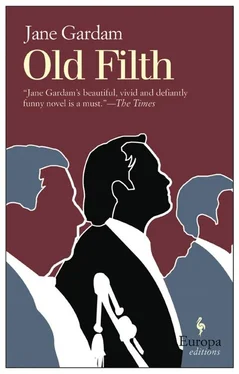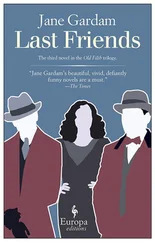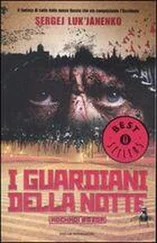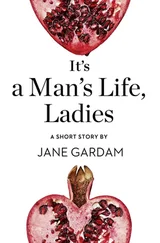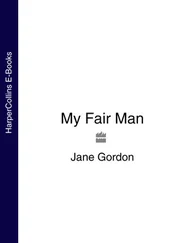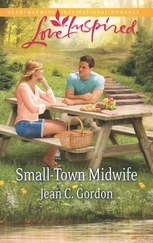Lawyers, I suppose, were
children once
(Inscription upon the statue of a child
in the Inner Temple Garden in London)
To Raj Orphans
and their parents
The Benchers’ luncheon-room of the Inner Temple. Light pours through the long windows upon polished table, silver, glass. A number of Judges and Benchers finishing lunch. One chair has recently been vacated and the Benchers are looking at it.
The Queen’s Remembrancer: I suppose we all know who that was?
Junior judge: I’ve no idea.
Senior judge: It seemed to be a famous face.
The Common Sergeant: It was Old Filth.
JJ: What! But he must have died years ago. Contem-porary of F. E. Smith.
CS: No. It was Old Filth. Great advocate, judge and — bit of a wit. Said to have invented FILTH — Failed In London Try Hong Kong. He tried Hong Kong. Modest, nice chap.
SJ: Hard worker. Well — the Pollution Law. Feathers on Pollution.
CS: Filth on Filth.
SJ: An old joke. He must be a hundred.
CS: Nowhere near. He’s not been retired all that long. Looks a great age, though.
QR: Transparent. You could see the light through him.
CS: Magnificent looks, though. And still sharp.
QR: He’s up here doing things to his Will. He’s got Betty with him. She’s still alive too. They’ve had a soft life. Far Eastern Bar. And made a packet. Looked after themselves.
CS: Never put a foot wrong, Old Filth. Very popular.
QR: Except with Veneering.
SJ: Yes, that was odd. Out of character.
QR: For such a benevolent old bugger. D’you think there are mysteries?
SJ: Old Filth mysterious?
QR: It’s a wonder he’s not just a bore.
CS: Yes. But he’s not. Child of the Raj, public school, Oxford, the Bar — but he’s not a bore. Women went mad for him.
QR: Coffee? You going through?
CS: Yes. Ten minutes. My Clerk’s packing in the next case. He’ll be ranting at me. Tapping his watch.
QR: Yes. This isn’t Hong Kong. Coffee? But it was good to see the old coelacanth.
CS: Yes. Yes, indeed it was. Tell our grandchildren.
He was spectacularly clean. You might say ostentatiously clean. His ancient fingernails were rimmed with purest white. The few still-gold hairs below his knuckles looked always freshly shampooed, as did his curly still-bronze hair. His shoes shone like conkers. His clothes were always freshly pressed. He had the elegance of the 1920s, for his garments, whatever they looked like off, always became him. Always a Victorian silk handkerchief in the breast pocket. Always yellow cotton or silk socks from Harrods; and some still perfect from his old days in the East. His skin was clear and, in a poor light, young.
His colleagues at the Bar called him Filth, but not out of irony. It was because he was considered to be the source of the old joke, Failed In London Try Hong Kong. It was said that he had fled the London Bar, very young, very poor, on a sudden whim just after the War, and had done magnificently well in Hong Kong from the start. Being a modest man, they said, he had called himself a parvenu, a fraud, a carefree spirit.
Filth in fact was no great maker of jokes, was not at all modest about his work and seldom, except in great extremity, went in for whims. He was loved, however, admired, laughed at kindly and still much discussed many years after retirement.
Now, nearing eighty, he lived alone in Dorset. His wife Betty was dead but he often prattled on to her around the house. Astonishingly in one so old, his curly hair was not yet grey. His eyes and mind alert, he was a delightful man. He had always been thought so. A man whose distinguished life had run steadily and happily. There was no smell of old age about his house. He was rich and took for granted that it (and he) would be kept clean, fed and laundered by servants as it had always been. He knew how to treat servants and they stayed for years.
Betty had been successful with servants, too. Both she and Old Filth had been born in what Americans called the Orient and the British Raj had called the Far East. They knew who they were, but they were unselfconscious and popular.
After Betty’s death the self-mockery dwindled in Old Filth. His life exploded. He became more ponderous. He began, at first slowly, to flick open shutters on the past that he had, as a sensible man with sensible and learned friends (he was a QC and had been a judge), kept clamped down.
His success as an advocate in Hong Kong had been phenomenal for he had had ease, grasp, diligence and flair. His career had taken off the minute he had begun to be briefed by the Straits-Chinese. It was not just that scraps of eastern languages began to re-emerge from his childhood in Malaya, but a feeling of nearness to the Oriental mind. When Old Filth spoke Malay or (less ably) Mandarin, you heard an unsuspected voice. Chinese, Malay and Bengali lawyers — though often trained at Oxford and the Inns of Court — were thought to be not straightforward but Filth, now Old Filth and after his retirement often Dear Old Filth, had found them perfectly straightforward, and to his taste.
All his life he kept a regard for Chinese values: the courtesy, the sudden thrust, the holiness of hospitality, the pleasure in money, the decorum, the importance of food, the discretion, the cleverness. He had married a Scotswoman but she had been born in Peking. She was dumpy and tweedy with broad Lanarkshire shoulders and square hands, but she spoke Mandarin perfectly and was much more at home with Chinese ways and idiom than she ever felt on her very rare visits to Scotland. Her passion for jewellery was Chinese and her strong Scottish fingers rattled the trays of jade in the street markets of Kowloon, stirring the stones like pebbles on a beach. “When you do that,” Old Filth would say — when they were young and he was still aware of her all the time—“your eyes are almond-shaped.” “Poor Old Betty,” he would say to her ghost across in another armchair in the house in Dorset to which they had retired and in which she had died.
And why ever Dorset? Nobody knew. Some family tradition somewhere perhaps. Filth said it was because he disliked everywhere else in England, Betty because she felt the cold in Scotland. They both had a dismissive attitude towards Wales.
But if any old pair had been born to become retired ex-pats in Hong Kong, members of the Cricket Club, the Jockey Club, stalwarts of the English Lending Library, props of St. Andrew’s Church and St. John’s Cathedral, they were Filth and Betty. People who would always be able to keep servants (Filth was very rich), who would live in a house on The Peak, be forever welcoming hosts to every friend of a friend’s friend visiting the Colony. When you thought of Betty, you saw her at her round rosewood dining table, looking quickly about her to see if plates were empty, tinkling her little bell to summon the snakey smiling girls in their household livery of identical cheongsams. Old Filth and Betty were perfectly international people, beloved ornaments at every one of the Memorial Services to old friends, English or Chinese, in the Cathedral. In the last years these deaths had been falling thick and fast upon them.
Was it perhaps “The Pound” that drew them to Dorset? The thought of having to survive one day in Hong Kong on a pension? But the part of Dorset they had chosen was far from cheap. Betty was known to “have her own money” and Filth had always said merrily that he had put off making judge for as long as possible so that he hadn’t to live on a salary.
Читать дальше
